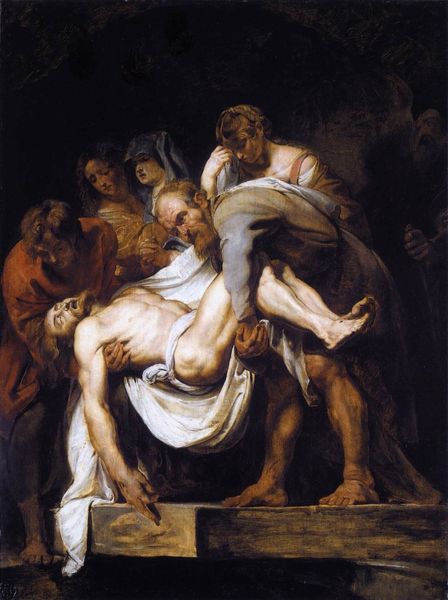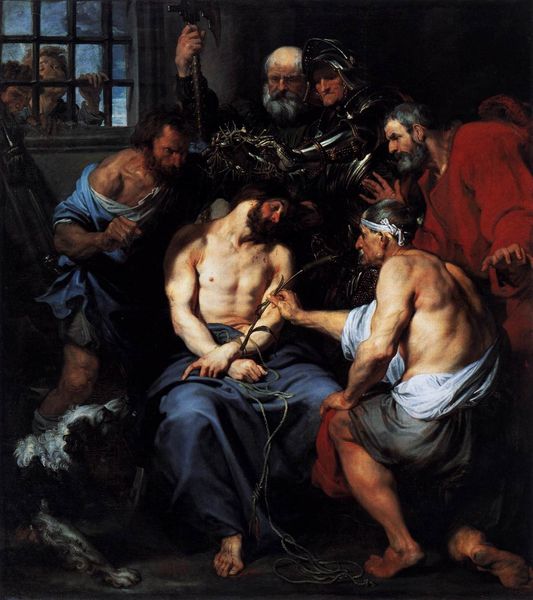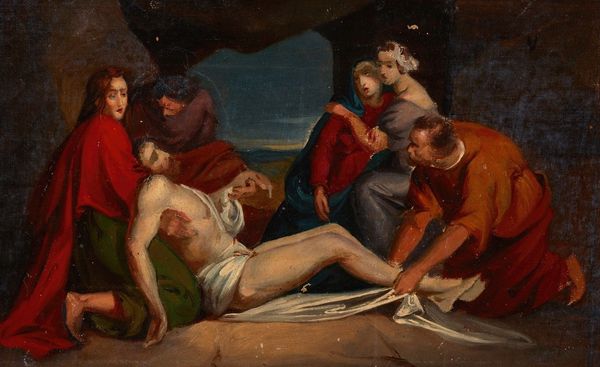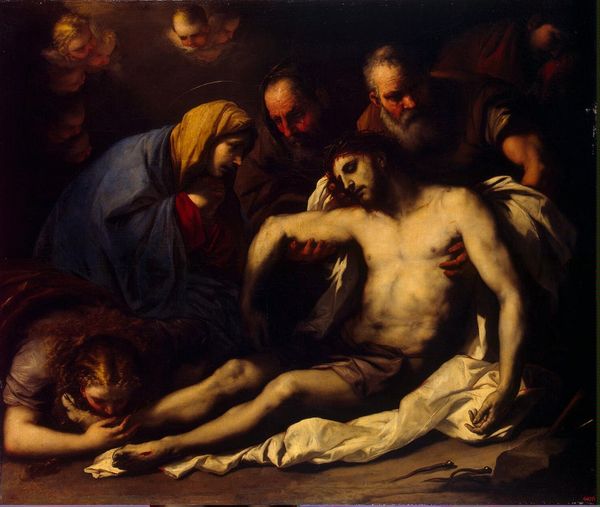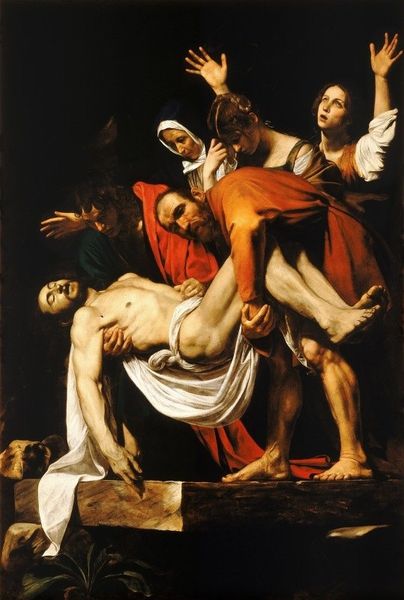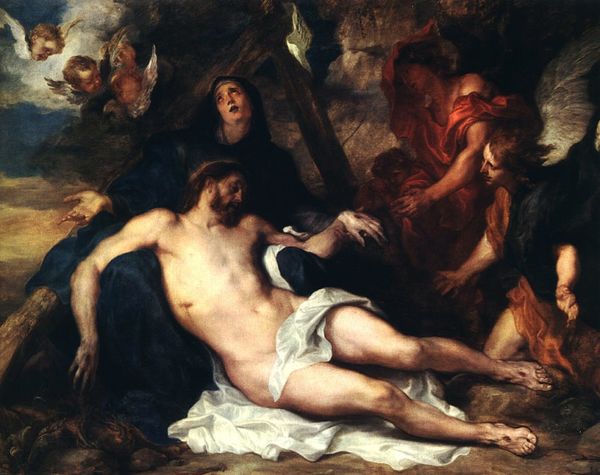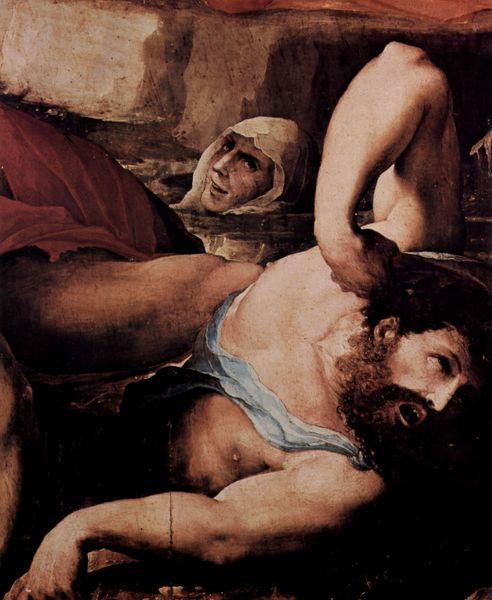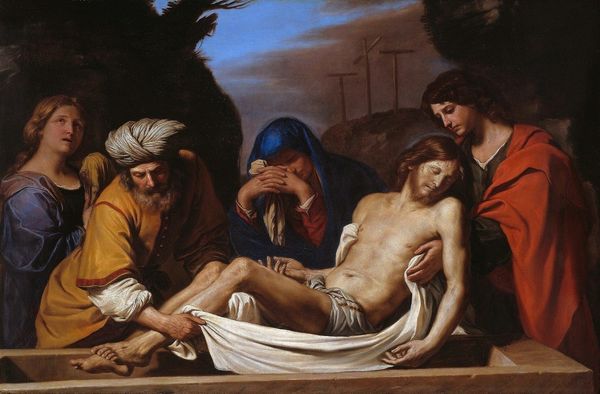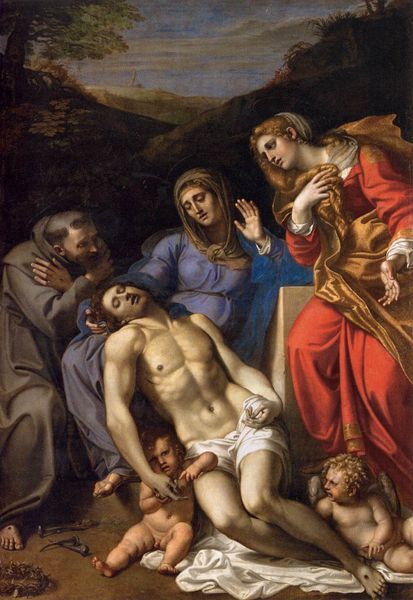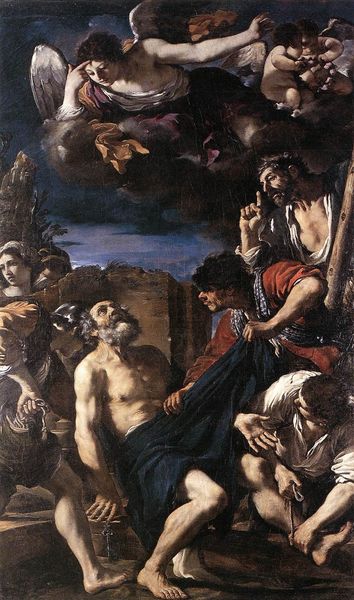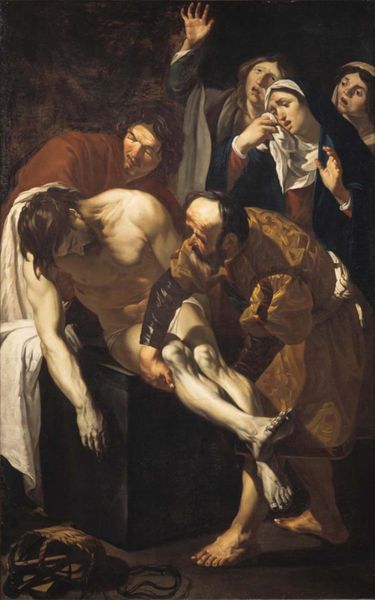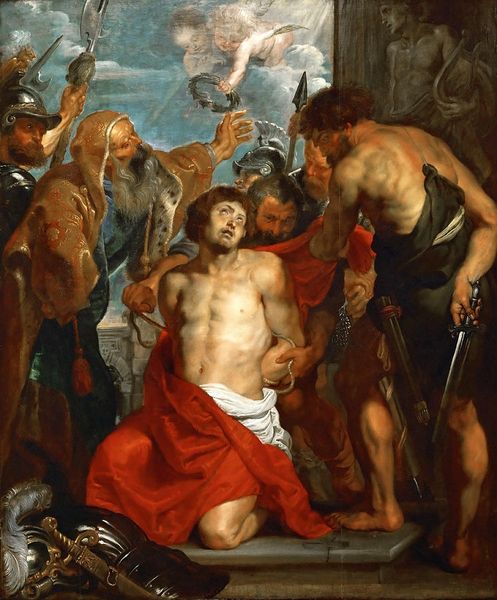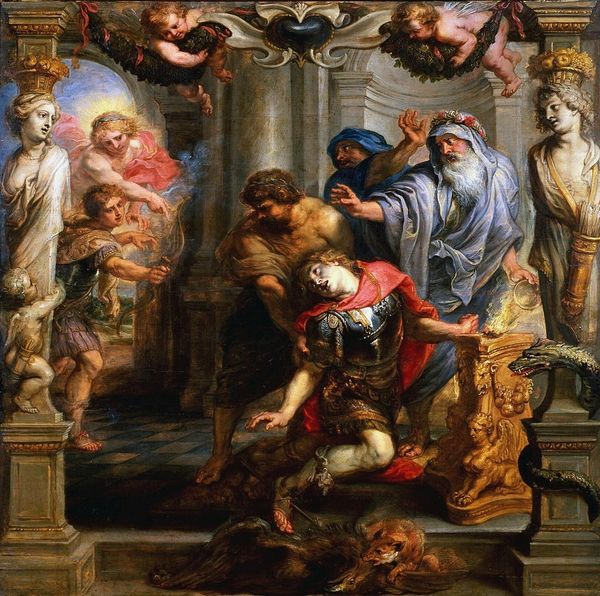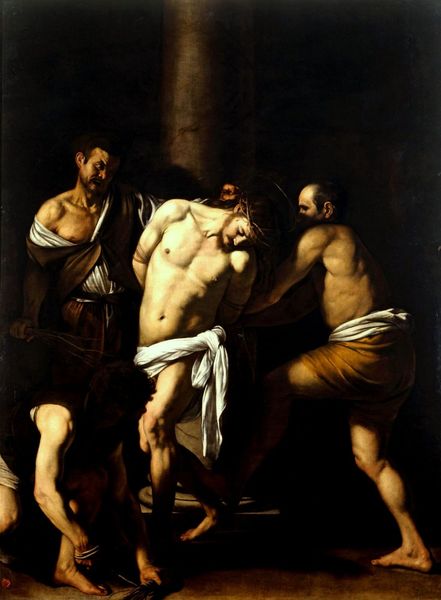
oil-paint
#
venetian-painting
#
oil-paint
#
figuration
#
oil painting
#
history-painting
#
italian-renaissance
#
realism
Dimensions: 213 x 173 cm
Copyright: Public domain
Paolo Veronese painted this ‘Deposition of Christ’ in oil on canvas, but its precise date and original location are currently unknown. At first glance, the scene depicts a familiar subject in Christian art: the removal of Christ's body from the cross. Yet Veronese was a product of the Venetian Renaissance, a culture of civic pride, wealth, and display. His religious scenes often draw criticism for their perceived worldliness. Here, the figures are robust and handsome, their emotions are restrained, and the overall effect is one of solemn drama rather than overwhelming grief. The careful attention to fabric and musculature also reveals the influence of classical art. The painting therefore tells us something about the changing role of religious art in sixteenth-century Italy, where wealthy patrons sought to affirm their social status through art. Art historians often turn to sources such as letters, diaries, and account books to better understand the relationship between artists, patrons, and institutions. The meaning of any artwork is thus contingent on its social and institutional context.
Comments
No comments
Be the first to comment and join the conversation on the ultimate creative platform.
